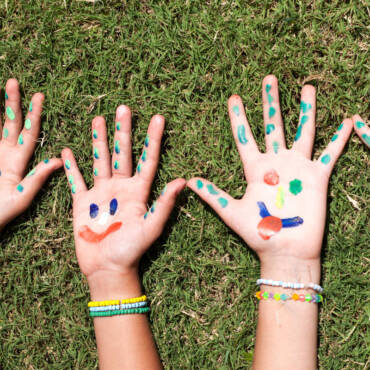As autumn deepens and families prepare for shorter days, November offers a natural pause to reflect on gratitude. In Jewish tradition, gratitude is not reserved for one holiday or season. It is woven into the rhythm of everyday life. The very first words of the morning, Modeh Ani, remind us to start each day with thanks. At Tamim Academy, gratitude is not seen as a polite phrase to be spoken occasionally, but as a mindset that helps children notice the blessings in their lives, appreciate the people around them, and develop a resilient outlook.
In this blog, we will explore why gratitude matters for children, how Jewish values frame it, and practical ways both school and families can help children practise thankfulness daily.
Why Gratitude Matters for Children
Gratitude shapes the way we see the world. For children, it is especially powerful. Those who regularly practice gratitude can become more optimistic, empathetic, and resilient. Gratitude helps children pause, notice, and appreciate. It is not about ignoring struggles but about maintaining perspective.
Imagine a child who is disappointed after losing a game at recess. A gratitude practice might help them notice the joy of playing with friends, the encouragement they received, or the fresh air they enjoyed. This shift in focus does not erase the disappointment, but it gives the child tools to regulate emotions and move forward positively.
Gratitude in Jewish Life
Jewish practice places gratitude at the centre of life. Blessings before and after meals, prayers of thanks for daily experiences, and rituals tied to Shabbat and holidays all remind us to appreciate the gifts we receive. These practices teach children that gratitude is not limited to extraordinary moments. It is something to recognize in the everyday, whether in food, family, or even waking up each morning.
At Tamim, these Jewish rhythms inspire us to build gratitude into the classroom environment. By pairing the ancient wisdom of our tradition with modern teaching, we help children see gratitude as something real and relevant in their daily lives.
Gratitude in Action – More Than Words
True gratitude is more than saying “thank you.” It is about turning appreciation into action. When children learn to express thanks through behaviour, they build stronger relationships and a deeper sense of responsibility.
Examples might include:
- A student helping a classmate because they are grateful for help they once received.
- A family volunteering together at a food drive as a way of giving back.
- A child making an effort to include someone who might feel left out as an expression of appreciation for their own friendships.
At Tamim, gratitude is seen as something active. It is about noticing the good and then contributing to it.
Why November is the Perfect Month to Focus on Gratitude
The rhythm of the school year makes November a particularly valuable time to highlight gratitude. The initial excitement of September has settled, and children are now immersed in routines. At this stage, challenges such as homework or tests may feel more intense. Gratitude offers balance. It helps children pause and recognise progress, friendships, and small joys, even in the midst of stress.
For Jewish families, November also falls close to the season of Chanukah, a festival that celebrates light, miracles, and resilience. Gratitude prepares us to appreciate not only the extraordinary but also the everyday gifts that sustain us.
Conclusion
Gratitude is not seasonal. It is a way of living. At Tamim Academy, we believe that cultivating gratitude in children equips them with resilience, empathy, and joy that will serve them throughout their lives. November, with its crisp air and natural opportunities for reflection, is the perfect moment to deepen these practices at school and at home.
By encouraging children to notice the good, express appreciation, and turn gratitude into action, we empower them to see life through a lens of abundance. In doing so, we not only enrich their learning but also strengthen the bonds of family, community, and faith.



